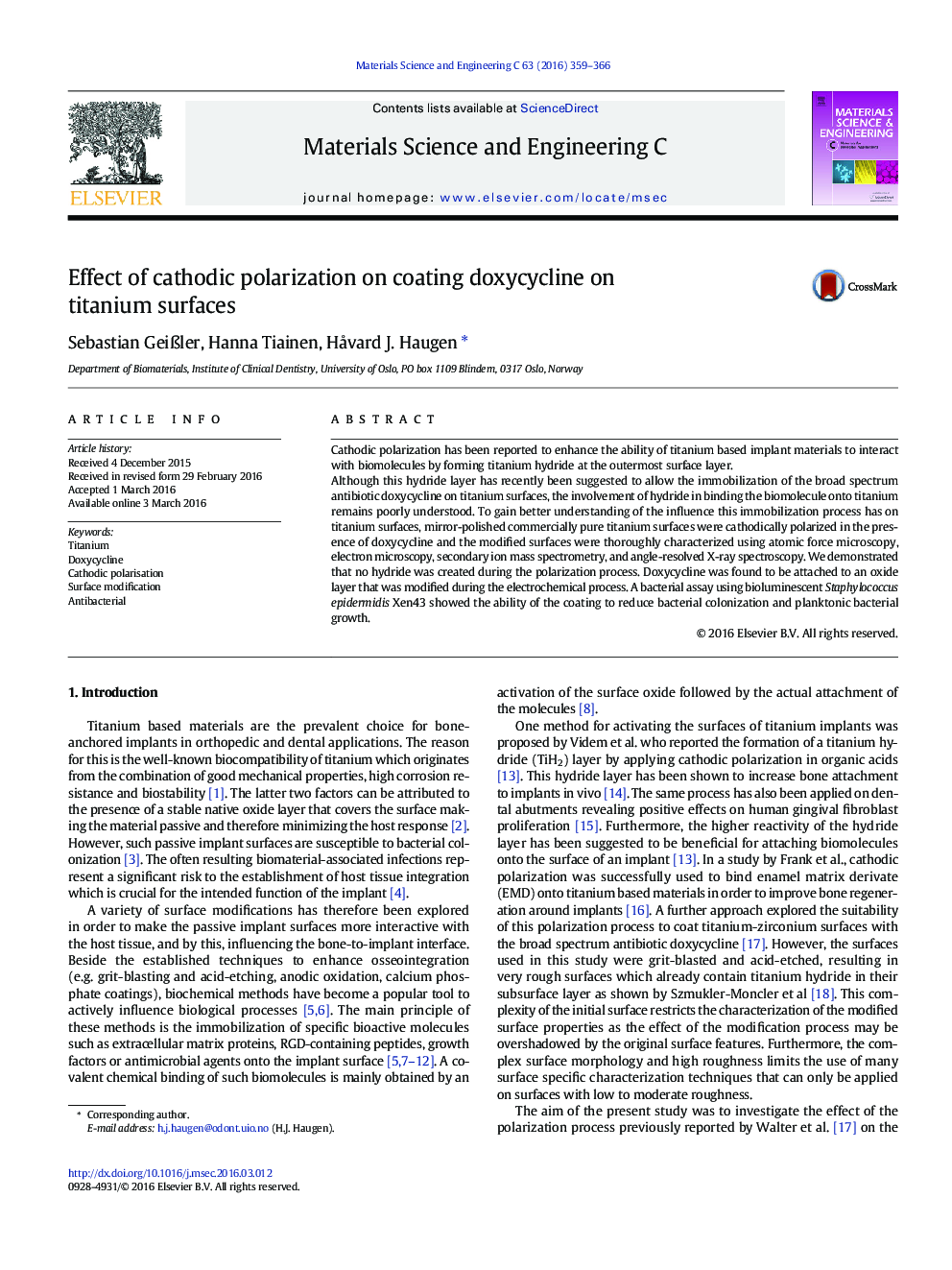| Article ID | Journal | Published Year | Pages | File Type |
|---|---|---|---|---|
| 1428028 | Materials Science and Engineering: C | 2016 | 8 Pages |
•Titanium hydride was found not to be involved in immobilization of doxycycline.•Doxycycline coating was strongly bound to a modified surface oxide layer.•Effect of coatings tested using a dynamic bacteria assay based on bioluminescence.•Topmost layer of adsorbed doxycycline was shown to have strong antibacterial effect.
Cathodic polarization has been reported to enhance the ability of titanium based implant materials to interact with biomolecules by forming titanium hydride at the outermost surface layer.Although this hydride layer has recently been suggested to allow the immobilization of the broad spectrum antibiotic doxycycline on titanium surfaces, the involvement of hydride in binding the biomolecule onto titanium remains poorly understood. To gain better understanding of the influence this immobilization process has on titanium surfaces, mirror-polished commercially pure titanium surfaces were cathodically polarized in the presence of doxycycline and the modified surfaces were thoroughly characterized using atomic force microscopy, electron microscopy, secondary ion mass spectrometry, and angle-resolved X-ray spectroscopy. We demonstrated that no hydride was created during the polarization process. Doxycycline was found to be attached to an oxide layer that was modified during the electrochemical process. A bacterial assay using bioluminescent Staphylococcus epidermidis Xen43 showed the ability of the coating to reduce bacterial colonization and planktonic bacterial growth.
Graphical abstractFigure optionsDownload full-size imageDownload as PowerPoint slide
